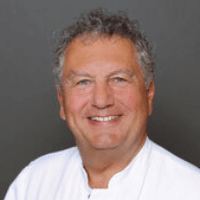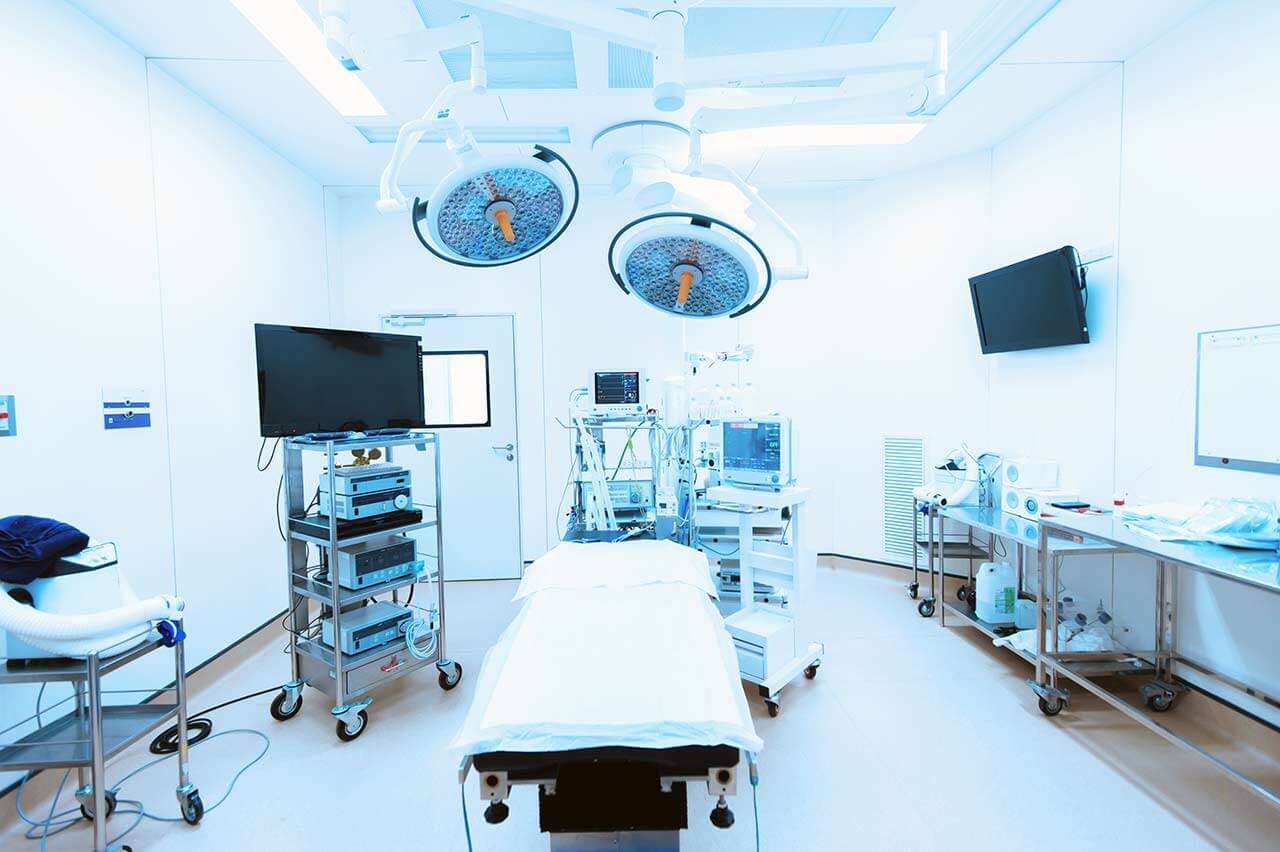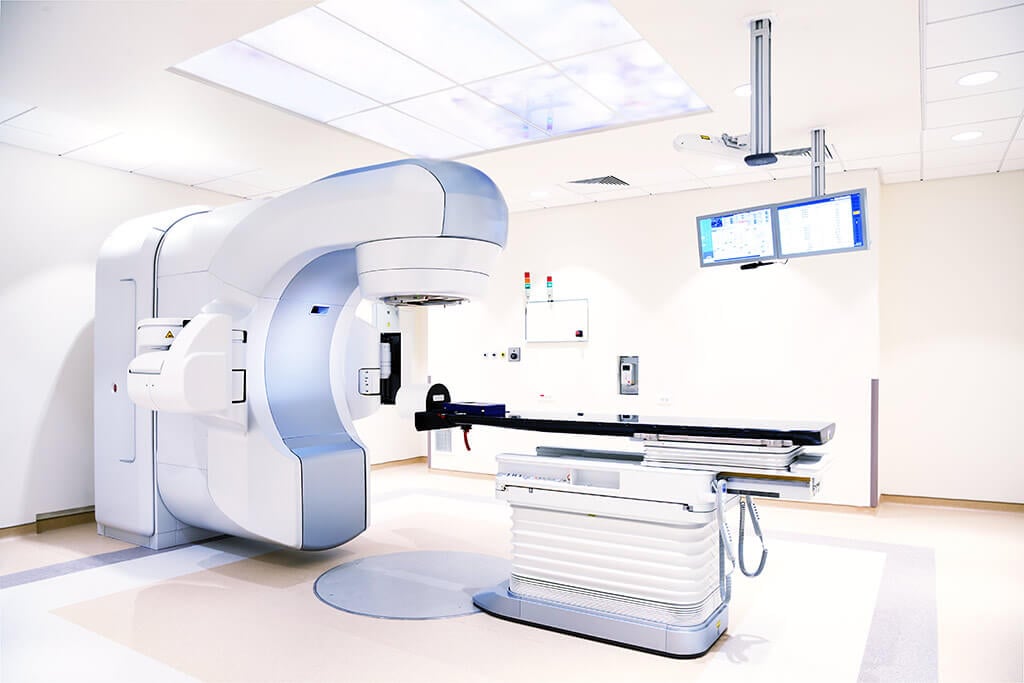
About the Department of Spinal Surgery at Catholic Clinic Koblenz-Montabaur
The Department of Spinal Surgery at the Catholic Clinic Koblenz-Montabaur offers the full range of effective treatment methods in the area of its specialization. A highly qualified team of doctors is at the service of the department's patients, who have in their arsenal advanced conservative and surgical treatment methods for pathological changes in the spine. Spinal surgical procedures are performed in modern operating rooms, the technical equipment of which allows spinal surgeons to perfectly perform both major open surgery and sparing interventions: minimally invasive, endoscopic, and microsurgical. Surgical treatment is complemented by a carefully planned course of physiotherapy. This includes procedures such as therapeutic exercises, manual therapy, massage, osteopathic treatment, etc. The department's team of doctors consists of 10 highly qualified specialists who, together with experienced nursing staff, admit more than 1,300 inpatients annually. The medical facility is certified by the German Society for Spine Surgery (DWG) as a level II specialized center. The department's medical team makes every effort to provide each patient with optimal treatment in a pleasant and friendly atmosphere. The Head Physician of the department is Dr. med. Francis Kilian.
Herniated discs are one of the most common spinal diseases. Pathology develops as a result of the rupture of the fibrous ring of the intervertebral disc (upper shell) and the extrusion of part of the nucleus pulposus (inner part of the disc). The main manifestations of herniated discs are severe pain in the back and deteriorated spinal mobility. In many cases, herniated discs respond well to conservative treatment, but the patient should be prepared for the fact that achieving a successful result from therapy can take quite a long period of time. Conservative treatment options include the prescription of painkillers, manual therapy (a highly specialized doctor uses a special complex of methods and massage techniques that affect the mobility of the spinal segments), massage, therapeutic exercises, and other methods. If a course of treatment is ineffective, the spinal surgeon considers possible options for surgical treatment. The department's specialists give preference to endoscopic surgery (microdiscectomy) if the patient's clinical indications allow for such an intervention. Endoscopic surgery is the most sparing of all the options currently available for the treatment of herniated discs. The essence of microdiscectomy is to remove the deformed part of the intervertebral disc that has undergone deformation using an endoscope. The intervention is performed under general anesthesia, and the patient usually gets back on their feet the day of the operation. A big advantage of endoscopic treatment for herniated discs is also the fact that there are practically no complications after such an operation. Other options for surgical treatment of herniated discs are discectomy and laminectomy.
The department's spinal surgeons have been treating spondylolisthesis for many years, in which the patient suffers from spinal instability that occurs due to excessive vertebral mobility. Vertebral displacement may provoke the development of spinal deformity, spinal stenosis, compression of the nerve endings and blood vessels in the affected area, and other problems. The optimal treatment for spondylolisthesis depends on the severity of the symptoms and the stage of the disease. In the early stages of pathology, conservative methods are usually used. The patient is prescribed painkillers, manual therapy, physiotherapy, therapeutic exercises, massage, acupuncture, and other procedures to relieve pain. Wearing a special corset also has a good effect. However, if conservative therapy does not give the desired result, the only effective treatment option is surgery, namely a stabilizing intervention. The purpose of the operation is to fix the "slipped" vertebra in its normal anatomical position, after which the affected area of the spine is additionally stabilized using a special device made of hypoallergenic metal.
The department also specializes in the surgical treatment of benign and malignant tumors of all segments of the spine. Patients with spinal tumors are treated cooperatively with related specialists, including oncologists, radiologists, radiation therapists, and others. An interdisciplinary approach provides patients with the most comprehensive and effective treatment, taking into account the slightest nuances. As in most other tumors, the best treatment option is total tumor removal. At the same time, doctors are faced with the task of maintaining the integrity of the nerves and tissues surrounding the tumor, which will help eliminate disability in the future. Surgery for spinal tumors is performed in the department using microsurgical techniques. Surgeons have at their disposal powerful surgical microscopes that allow them to easily differentiate between the tumor and healthy tissue. Surgery for malignant tumors is usually supplemented with chemotherapy and/or radiation therapy aimed at the total destruction of malignant cells remaining in the patient's body.
The department's surgeons regularly admit patients with scoliosis. Scoliosis is a lateral curvature of the spine that can be congenital or acquired. Regardless of the cause of the deformity, scoliosis may lead to uneven distribution of the load on the spine, severe pain, and movement restrictions. In addition, pathology negatively affects the patient's general health and quality of life. The therapeutic process begins with comprehensive diagnostics, including a clinical examination, assessment of X-ray images, and others. During the diagnostics, doctors take into account the patient's specific symptoms, his age, general health, and other factors that are also important in developing the optimal treatment regimen. The first-line treatment is conservative therapy with therapeutic exercises, physiotherapy, and the wearing of special corrective corsets, but in complex cases, it is often impossible to do without surgical repair. When performing the surgical intervention, the department's doctors place a special implant (a metal rod) for the patient with fixators that can move along the axis of the spine, which are attached to the vertebral bodies, as a result of which spinal curvature can be eliminated. The department's surgeons always give preference to performing interventions using minimally invasive techniques, due to which the postoperative recovery process is extremely fast and there is practically no risk of complications.
The department specializes in the treatment of the following spinal diseases:
- Herniated discs
- Spondylolisthesis (spinal instability), including in cases of intervertebral disc degeneration, post-nucleotomy syndrome after spinal fractures, and due to inflammatory processes
- Congenital and acquired scoliosis
- Benign and malignant spinal tumors
- Spinal malformations
- Other spinal diseases and deformities
The department's range of medical services includes:
- Conservative treatment
- Therapeutic exercises, including with the use of special equipment
- Manual therapy
- Manual lymphatic drainage massage
- Physical therapy: electrotherapy and thermotherapy
- Therapeutic massage
- Exercises to strengthen the back muscles on the Tergumed® simulator
- Osteopathic treatment
- Kinesiology taping
- 3D scoliosis correction using the Schroth method
- Surgical treatment
- Endoscopic surgery
- Minimally invasive surgery
- Microsurgical procedures
- Other treatment methods
Curriculum vitae
Higher Education
- 1976 - 1994 Board certification in Neurosurgery, Orthopedics, and Spinal Surgery, Ruhr University Bochum, University of Duisburg-Essen, and Heinrich Heine University Duesseldorf.
- 1976 - 1982 Medical studies, state exams and doctorate, Ruhr University Bochum.
Professional Career
- Since 1999 Head of the Department of Spinal Surgery at the Catholic Clinic Koblenz-Montabaur, Koblenz, Germany.
- 1996 - 1998 Medical Advisor, Department of Spinal Surgery, Hospital Lorelei, Oberwesel, Germany.
- 1994 - 1996 Medical Advisor, Orthopedic Surgeon, Department of Orthopedics, St. Josef Hospital, Koblenz, Germany.
- 1990 - 1993 Residency, Department of Orthopedics, University Hospital Duesseldorf, Duesseldorf, Germany.
- 1983 - 1990 Intern, Department of Neurosurgery, University Hospital Essen, Essen, Germany.
Memberships in Professional Societies
- European Spine Society (EUROSPINE).
- German Society for Spine Surgery.
- International Society for Minimally Invasive Spine Surgery.
- German Society of Plastic, Reconstructive and Aesthetic Surgeons.
- German-Japanese Society for Orthopedics and Traumatology.
Photo of the doctor: (c) Katholisches Klinikum Koblenz - Montabaur





